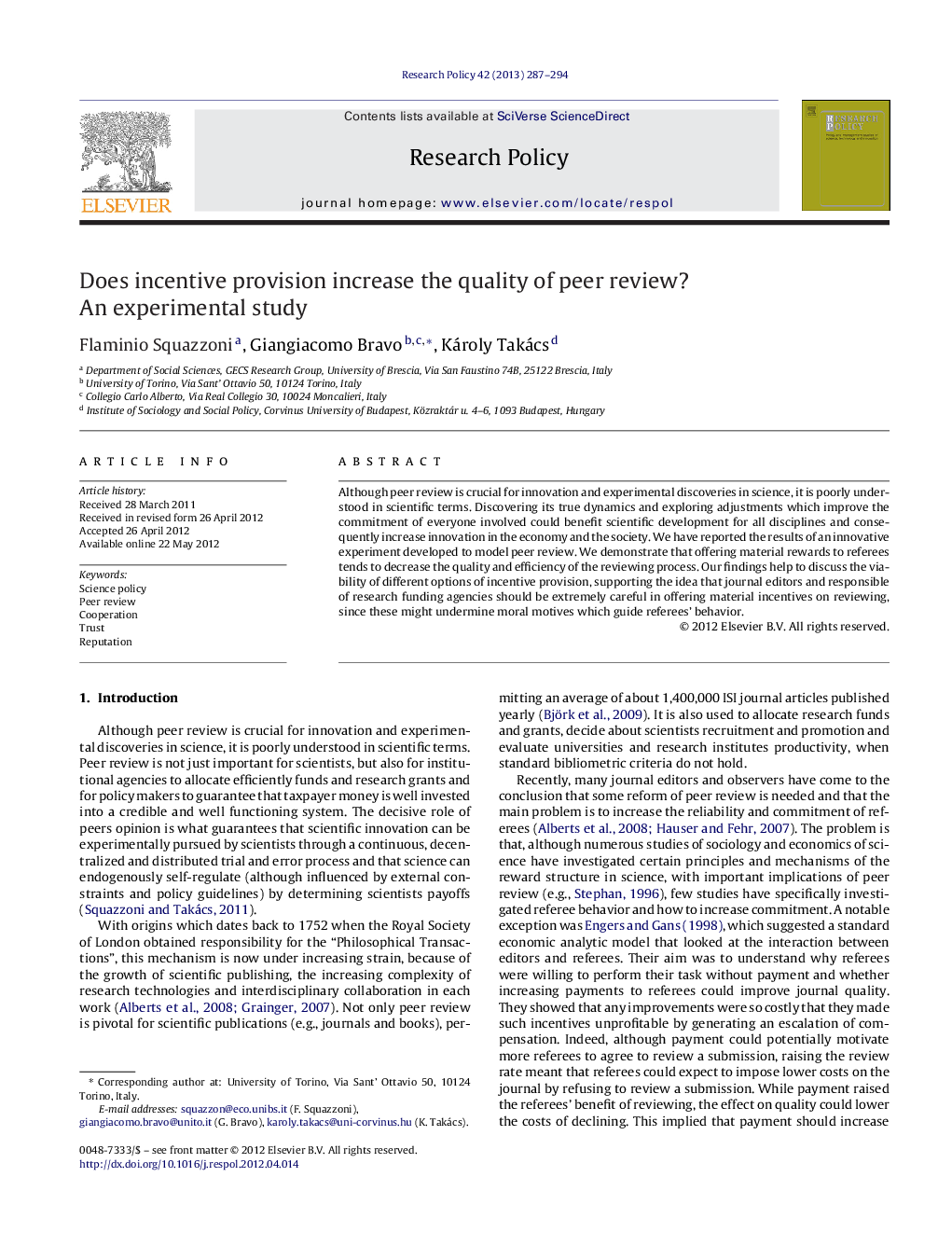| Article ID | Journal | Published Year | Pages | File Type |
|---|---|---|---|---|
| 984701 | Research Policy | 2013 | 8 Pages |
Although peer review is crucial for innovation and experimental discoveries in science, it is poorly understood in scientific terms. Discovering its true dynamics and exploring adjustments which improve the commitment of everyone involved could benefit scientific development for all disciplines and consequently increase innovation in the economy and the society. We have reported the results of an innovative experiment developed to model peer review. We demonstrate that offering material rewards to referees tends to decrease the quality and efficiency of the reviewing process. Our findings help to discuss the viability of different options of incentive provision, supporting the idea that journal editors and responsible of research funding agencies should be extremely careful in offering material incentives on reviewing, since these might undermine moral motives which guide referees’ behavior.
► Peer review is poorly understood in scientific terms. ► We developed an innovative experiment to understand the peer review process. ► We tested different incentive schemes for referees. ► Material incentives for referees undermine the quality and efficiency of peer review.
